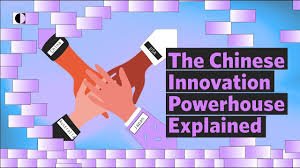In recent years, China has emerged as a major industry powerhouse in the global market. This is due to its abundance of low-cost labor, which has allowed businesses to thrive and create large amounts of products at a fraction of the cost. Additionally, the country has invested heavily in manufacturing equipment and technology, giving it a distinct advantage over other countries when it comes to production capabilities. As a result, China is now considered the world’s largest production country with hundreds of companies operating within its borders. The reasons why China has become such an influential force in global production are numerous and are continuing to grow as the country continues to experience economic growth.
—
China is one of the most rapidly developing countries in the world, and its emergence as a global production powerhouse has been nothing short of remarkable. Through strategic investments, cheap labor and vast manufacturing capacity, China has created an effective supply chain that allows businesses to manufacture goods quickly and at low cost – giving Chinese companies a significant advantage over their competitors. Moreover, the Chinese government's commitment to economic reform has helped create a culture of innovation that allows Chinese firms to remain at the top of their game. All these factors have contributed significantly to why China has become such an important player in global production.
—
China has become a powerhouse for production due to its advantageous economic policies, low labor cost and strong infrastructure. The Chinese people have a greater emphasis on working hard and are willing to sacrifice leisure time for increased productivity. The large population of manufacturing workers have enabled the country to make use of economies of scale, increasing output with small cost increments. Technologies such as 3D printing, automation, robotics and artificial intelligence have also paved the way for China to be a cost-effective production hub in Asia. Thus, China is now the leading nation in terms of industrialisation and production capabilities.
